QUIZ: What Do You Know About Diseases in the Developing World?
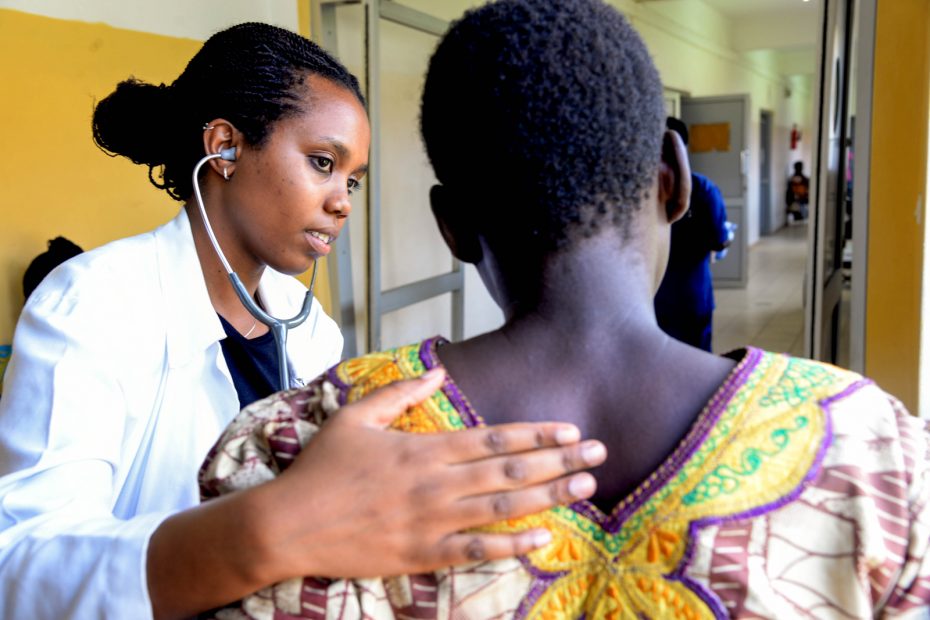
World AIDS Day is coming up on Dec. 1. This disease affects millions of people and many of the communities and children we serve around the globe. And it’s not alone. Test your knowledge of the health issues and medical conditions confronting children living in poverty with this quiz.
Continue Reading ›World Water Day: Uniting a Community with Sustainable Water
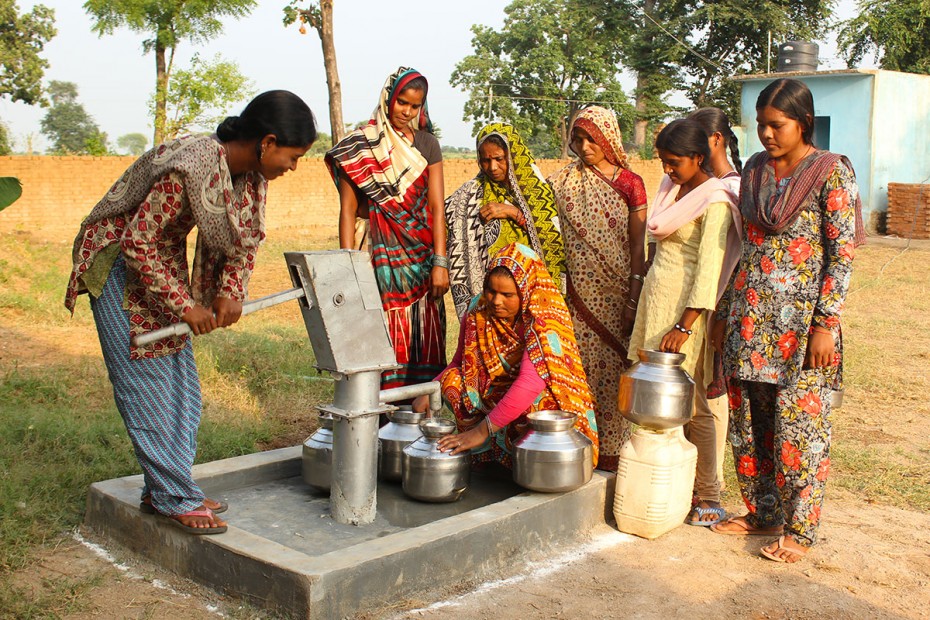
In a country where 1600 people die every die because of diarrhea due to unsafe water and 59% of of those who practice open defecation reside, one Child Development Center took the matter of lack of access to clean sustainable water and sanitation into their own hands and mobilized their community into action.
Continue Reading ›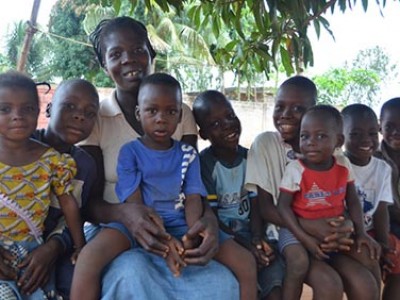
Safe Water Means Better Health
In Togo, national statistics indicate that 39 percent of the population do not have access to an improved drinking water source. A quarter of the Togolese population do not have, within a 30 minute walk, a source of drinking water.
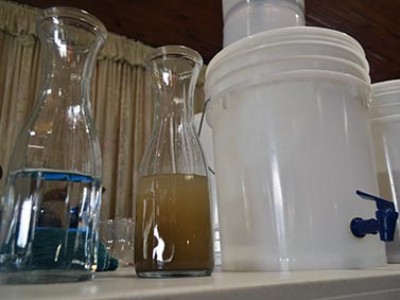
Investing in Community and Clean Water
The people of Nebaj live in a beautiful place, but it is very far from the city, and many times their needs are forgotten. Needs such as clean drinking water.
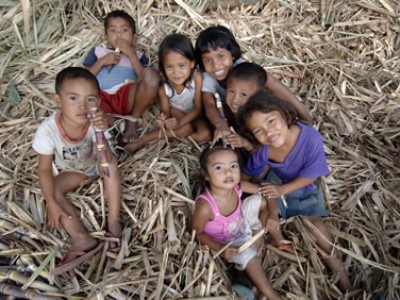
There’s More Hay to Haul
UNICEF recently announced that the number of children dying from preventable diseases around the world has dropped dramatically. But there’s more hay to haul.
What Impact Does Access to Clean Water Have on a Community?
No one would think people who live in an area rich in natural resources would have a problem getting water. But for many years, struggling to find fresh water was a way of life in Meagama Village in Papua, Indonesia’s largest province.
Longstanding agreements with other villages limited the sources where each community could draw water. For the villagers of Meagama, accessing water meant a two-hour journey on foot. Because they usually used a bucket to transport their water, obtaining enough water to meet their needs often required several trips.
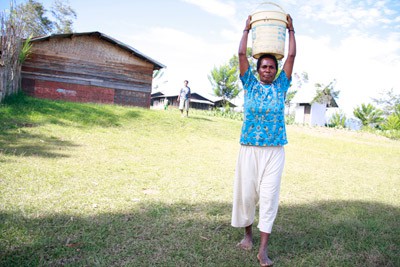
But the difficulties didn’t stop there; the water the Meagama people put so much effort into getting actually caused them harm.
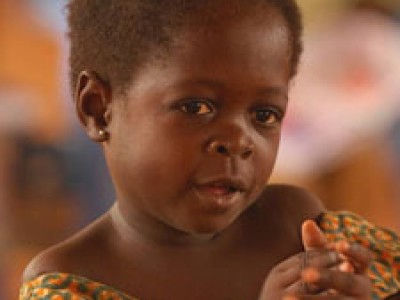
Grieving the Loss of a Sponsored Child
How do you say goodbye to a sponsored child who has died? Have you ever had to do that, or to say goodbye to another child in your life?
Preventable Causes of Death
Diarrhea. Unclean water. Measles. Pneumonia. Tuberculosis. Malaria. Every day 25,000 children younger than 5 die from mostly preventable causes. Why?

Because they live in poor countries that aren’t a priority to developed nations. But they’re still a priority to God.
And they can be yours, too – compassion.com/youcan
Opportunity Knocking: Knockout the Poverty Bullies
Will you respond when calamity knocks? When a poor child has no defenses? When she’s cornered by the bullies of poverty?
A Water Wake-Up Call
![]() Ninety-nine percent of the time, I get ready for my day after my 6½-year-old goes off to school. My 15-month-old daughter takes her morning nap around this time, and my 3-year-old plays on starfall.com. It just works better this way.
Ninety-nine percent of the time, I get ready for my day after my 6½-year-old goes off to school. My 15-month-old daughter takes her morning nap around this time, and my 3-year-old plays on starfall.com. It just works better this way.
But for whatever reason, one morning last month I woke up early — too early in my opinion, and I could not fall back asleep.
“Might as well get up,” I thought. So, I got a shower in and, wouldn’t you know, not 10 minutes after I stepped out, I hear a loud “CHUG CHUG CHUG!” coming from my cellar.
I ignored it (mainly because I don’t like going into the cellar) and went to brush my teeth. No water.
CHUG CHUG CHUG.
Great.
After mustering up my courage, I ventured down into the cellar where I could hear the pump or softener making a loud racket.
Now, I’m not a Mrs. Fix-It by any means, but I did know that I should probably turn off the breaker so whatever it was wouldn’t burn out. (Pat myself on the back …)
My husband told me to call the plumber, and thankfully by 3:30 that afternoon, the plumber had dug up our well and found that the iron in the water had corroded part of the well pump pipe (or something like that), which caused the pump to stop pumping the water up.
Purely maintenance, but I was happy the problem was solved. To a degree anyway.
I was informed that I was not to use the water for a couple days so that the filter could go through a few cycles to clean the water.
“Roughly 12 percent of the world’s population, or 884 million people, do not have access to safe water.”
“Yeah, okay, no problem,” I thought, but I soon realized that I use water for way more things than I thought:
- brushing my teeth
- taking a bath or shower (which I had to chuckle at, because God made sure I was up before this little event happened … am I that bad before I shower?)
- rinsing off the dishes
- running the dishwasher
- running the washing machine
- cooking
- ice
- flushing the toilet — which was okay to do after they fixed the pump, the water was just a murky gray.
- washing my hands
“Diarrheal diseases can be reduced by more than 40 percent through the simple practice of washing hands with soap and water.”
“The average person in the developing world uses a little more than 2.5 gallons of water each day for drinking, washing and cooking. Whereas the average person in the developed world uses 13 gallons per day only for toilet flushing. “
My “water poverty” problem lasted only a few days and just required some simple adjustments to our lifestyle. My husband picked up several gallons of water on his way home from work, which allowed us to continue in a fashion pretty close to normal. But as I waited for him to get home with the water, I stood in my house — and I broke down.
What about my sponsored children?
Where do they get their water?
How far do they have to travel?
Is it clean?
“Water-related diseases are the second biggest killer of children worldwide. This is around 5,000 deaths a day.”
Sources: www.who.int, www.wateraid.org, www.unicef.org
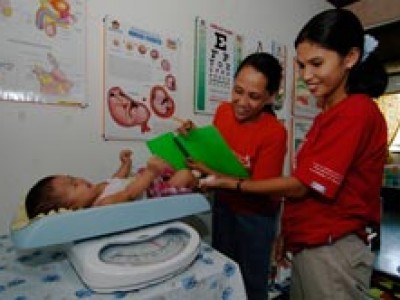
Child Survival 101
Being a mother takes courage. Being an expectant mother in desperate poverty takes courage and so much more.
Each year more than 500,000 mothers die in childbirth or from pregnancy complications, most of which are preventable. The babies who survive while their mothers die are much more likely to die in their first year of life.
Day of the African Child
Today is the Day of the African Child. Not a well known day for most, but an important day for the children of Africa who this day celebrates and remembers.
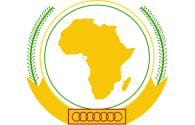 The African child is a resilient one, as many on the African continent must gather up great energy each day just to survive. The constant onslaught of risks and dangers that they face is more than many of us can imagine and more than any child should bear. HIV, AIDS, malaria, diarrhea, malnutrition…..just a few of the barriers that these children must overcome to live healthy and fulfilling lives.
The African child is a resilient one, as many on the African continent must gather up great energy each day just to survive. The constant onslaught of risks and dangers that they face is more than many of us can imagine and more than any child should bear. HIV, AIDS, malaria, diarrhea, malnutrition…..just a few of the barriers that these children must overcome to live healthy and fulfilling lives.
After having spent a good deal of time living and traveling to Africa, I have been amazed and incredibly blessed by being around these children. They have taught me more than any textbook could, and have given me strength when I needed it most.
Here’s to the millions of children in Africa that could use our prayers and support as they continue to face the harshest of environments.
Let’s commit to remembering them and praying for the continued success of this ministry that seeks to serve them and bring them out of their poverty.


